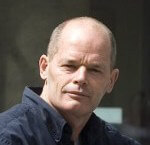
Author
Prof. Colin Hill, PhD
Prof. Colin Hill, PhD, DSc, has a Ph.D in molecular microbiology and is a Professor in the School of Microbiology at University College Cork, Ireland. He is also a founding Principal Investigator in APC Microbiome Ireland, a large research centre devoted to the study of the role of the gut microbiota in health and disease. His main interests lie in the role of the microbiome in human and animal health. He is particularly interested in the effects of probiotics, bacteriocins, and bacteriophage. In 2005 Prof. Hill was awarded a D.Sc by the National University of Ireland in recognition of his contributions to research. In 2009 he was elected to the Royal Irish Academy and in 2010 he received the Metchnikoff Prize in Microbiology and was elected to the American Academy of Microbiology. He has published more than 600 papers and holds 25 patents. He was president of ISAPP from 2012-2015. More than 80 PhD students have been trained in his laboratory. Google Scholar.
Articles written by Prof. Colin Hill, PhD
1-10 of 11 articles
-
I come to praise ISAPP, not to bury it: Reflections on 15 years as a board member
By Prof. Colin Hill PhD, University College Cork I have been a Board member of ISAPP since 2009, serving as… -
Should bacteriophages be considered as a member of the biotic family?
By Prof. Colin Hill PhD DSc, University College Cork, Ireland ISAPP has provided consensus definitions for a number of biotics… -
What is a strain in microbiology and why does it matter?
By Prof. Colin Hill, Microbiology Department and APC Microbiome Ireland, University College Cork, Ireland At the recent ISAPP meeting in… -
What do we mean by ‘conferring a health benefit on the host’?
Four of the Consensus definitions produced by ISAPP in recent years (see 1-4 below) finish with a similar wording, insisting… -
Probiotics, Prebiotics and Globobiotics!
By Prof. Colin Hill, PhD, APC Microbiome Ireland, University College Cork, Ireland Growing up I could not imagine what the… -
Another day, another negative headline about probiotics?
By Prof. Colin Hill, PhD, APC Microbiome Ireland, University College Cork, Ireland Scientists have a particular job. We try to… -
Humpty Dumpty and the Microbiome
Prof. Colin Hill, Microbiology Department and Alimentary Pharmabiotic Centre, University College Cork, Ireland (@colinhillucc) “When I use a word,” Humpty… -
Recommended daily allowance (RDA) for microbes?
By Prof. Colin Hill, Alimentary Pharmabiotic Centre, Food for Health Ireland, University College Cork In this months’ issue of The… -
Those who can’t do science, do science communication?
By Dr. Colin Hill See what I did there? I used a title which I hope will attract the attention… -
Academics working with industry
by Dr. Colin Hill, APC Microbiome Ireland & School of Microbiology, University College Cork, Ireland Many scientists have reservations about…